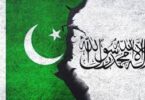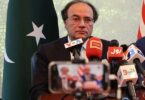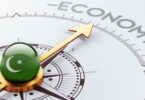Addressing the inauguration ceremony of first power unit of Golan Gol Hydropower Project in Chittral, Prime Minister Shahid Khaqn Abbasi said gas and power crisis has been resolved and the erstwhile falling ratio of economic growth was now on the surge. He claimed that the country had been put on right track and the journey of development would go on if the democratic system continued. He urged the people to make a right decision in the next elections to be held in July.
There are no two opinions about the virtues of true democracy which is of the people, for the people and by the people. But do the civilian governments run by the two main streams political parties turn by turn meet this coordinal principle of democracy? Is it not true that the civilian governments that came to power by the votes of common man from 1970 till date were dominated by the feudal and mercantile classes which implemented entirely pro rich policies? It was because of the pro rich economic policies that middle class, who serves as the main engine of economic progress, has become nonexistent in the country and the society is divided in top and bottom classes.
The logic behind the journey of development is skewed one as it stands in conflict with the ground realities. Had the country been on the right track, the economic outlook of the country would have not been changed from stable to negative by the International Credit Rating Agencies, Fetch and Moody. World Bank would have not painted a grim picture of Pakistan’s economy because of the macro economic imbalances created by the fiscal and monetary mismanagement of the PML-N government. These imbalances include the alarming current account deficit of $ 12 billion caused by persistent decline in exports, public debt burden of Rs. 27000 billion because of reckless borrowing and massive external payments liabilities. Unemployment is on the rise with 6 million jobless people and entry of one million job seekers to job market every year. Measured by International Poverty Line yardstick, 55 percent of country’s population is living below the poverty line. According to UNDP Report of 2016 Human Development Index (HDI) of Pakistan is 0.55 which ranks it 147th in the ranking of 188 countries. The rate of brain drain from the country has reached to the peak as in the last five years 2. 7 million young professional belonging to different professions have migrated to developed countries for employment and better career prospects. Even the employed doctors, engineers, public sector universities’ faculty members and postgraduates of management sciences serving as banker have left their homeland.
Power and gas crisis is not over as the power supply duration to rural areas is hardly two hours. That is why the KP government has started a program to solarise the irrigation tube wells, schools, Basic Health units and Rural and Rural Health Centers through out the province. Gas load shedding for domestic and commercial consumers has not ended. There is no energy policy in black and white and the power generation strategy is lopsided. It is abnormally tilted against cheap power generation from hydro, wind and solar resources. The previous KP government submitted a number of hydropower projects with a total generation capacity of 2100 megawatts in 2012 to the federal government butout of them 108 megawatts Golan Gol project was approved for financing and the remaining more than a dozen projects are awaiting approval from the Central Development Working Party (CDWP). The completion of 960 megawatts Nelum Jhelum Hydropower Project has delayed for the want of financial resources. On the other hand financial resources are made available for environment polluting coal base thermal power plants and at present less important and least productive projects of motorways and Orange Train. The journey of development encompasses construction of big dams with large water reservoirs and liberal amounts of spending on human resource development, which are not included on the top in the list of priorities.






